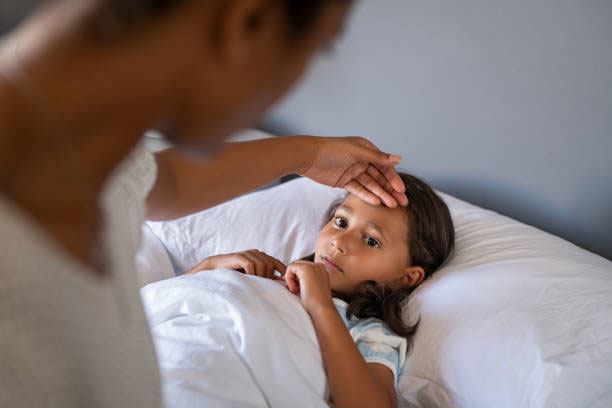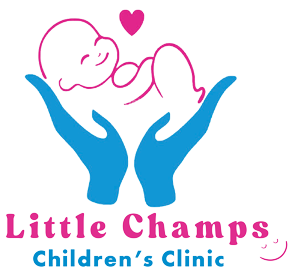The common cold is a frequent visitor in households with children, causing discomfort and concern among parents. While it's a prevalent illness, understanding its nuances and how to manage it effectively can significantly alleviate both the symptoms and stress associated with it. In this guide, we delve into the common cold in children, its causes, symptoms, prevention strategies, and when to seek medical attention.

What is the Common Cold?
The common cold is a viral infection primarily affecting the upper respiratory tract, including the nose and throat. While adults can also contract the cold, children, especially those in daycare or school settings, are particularly susceptible due to their developing immune systems and close proximity to other children.
Causes of the Common Cold in Children
The cold is primarily caused by various strains of viruses, with rhinovirus being the most common culprit. Children can contract the virus through direct contact with an infected person or by touching contaminated surfaces and then touching their nose or mouth.
Symptoms of the Common Cold
Recognizing the symptoms of a cold in children is essential for prompt management. Typical symptoms include
- Runny or stuffy nose
- Sneezing
- Coughing
- Sore throat
- Mild fever
- Fatigue
- Decreased appetite
Management and Treatment
While there is no cure for the common cold, several measures can help alleviate symptoms and promote recovery
- Rest: Encourage your child to get plenty of rest to support their immune system in fighting off the virus
- Hydration: Ensure your child drinks plenty of fluids, such as water, juice, or broth, to stay hydrated and loosen mucus.
- Humidifier: Using a humidifier in your child's room can help relieve congestion and ease breathing, especially during sleep.
- Saline Drops: Saline nasal drops can help clear nasal passages and relieve congestion, particularly in younger children who may have difficulty blowing their nose.
- Over-the-Counter Medications: Acetaminophen or ibuprofen can help reduce fever and alleviate discomfort. However, always consult a pediatrician before administering any medication to children.
- Encourage Good Hygiene: Teach your child the importance of handwashing and covering their mouth and nose when coughing or sneezing to prevent the spread of the virus.
Prevention Strategies
Prevention is key to reducing the risk of colds in children. Some effective strategies include
- Frequent handwashing with soap and water
- Avoiding close contact with sick individuals
- Teaching children to avoid touching their face, especially their eyes, nose, and mouth
- Keeping surfaces clean and disinfected, especially in shared spaces like daycare centers and schools
When to Seek Medical Doctor?
In most cases, the common cold resolves on its own within a week to ten days. However, certain symptoms warrant medical attention, including
- High fever (above 100.4°F or 38°C)
- Difficulty breathing
- Wheezing
- Persistent ear pain
- Severe sore throat
- Persistent cough or coughing fits
- Worsening symptoms or no improvement after a week
While the common cold in children can be disruptive and uncomfortable, it is usually a mild and self-limiting illness. By understanding its causes, symptoms, and management strategies, parents can effectively support their child's recovery and minimize the impact of the virus on the family. Additionally, practicing good hygiene and implementing preventive measures can help reduce the risk of future infections, ensuring a healthier environment for children to thrive.
Articles
- The Impact of Nutrition on Children's Growth and Development
- The Benefits of Spending Time Outdoors for Children's Health
- The Ultimate Guide to Infant Feeding
- Establishing Healthy Sleep Habits for Your Baby
- Newborn Baby Rash Treatment In Vijayawada
- What is baby colic?
- Dengue Fever in Infants
- What do you need to know about chickenpox or varicella?
- What is common cold in children?
- What is whooping cough or pertussis in children?
- What is anemia in kids?
- What is influenza or flu n children?
